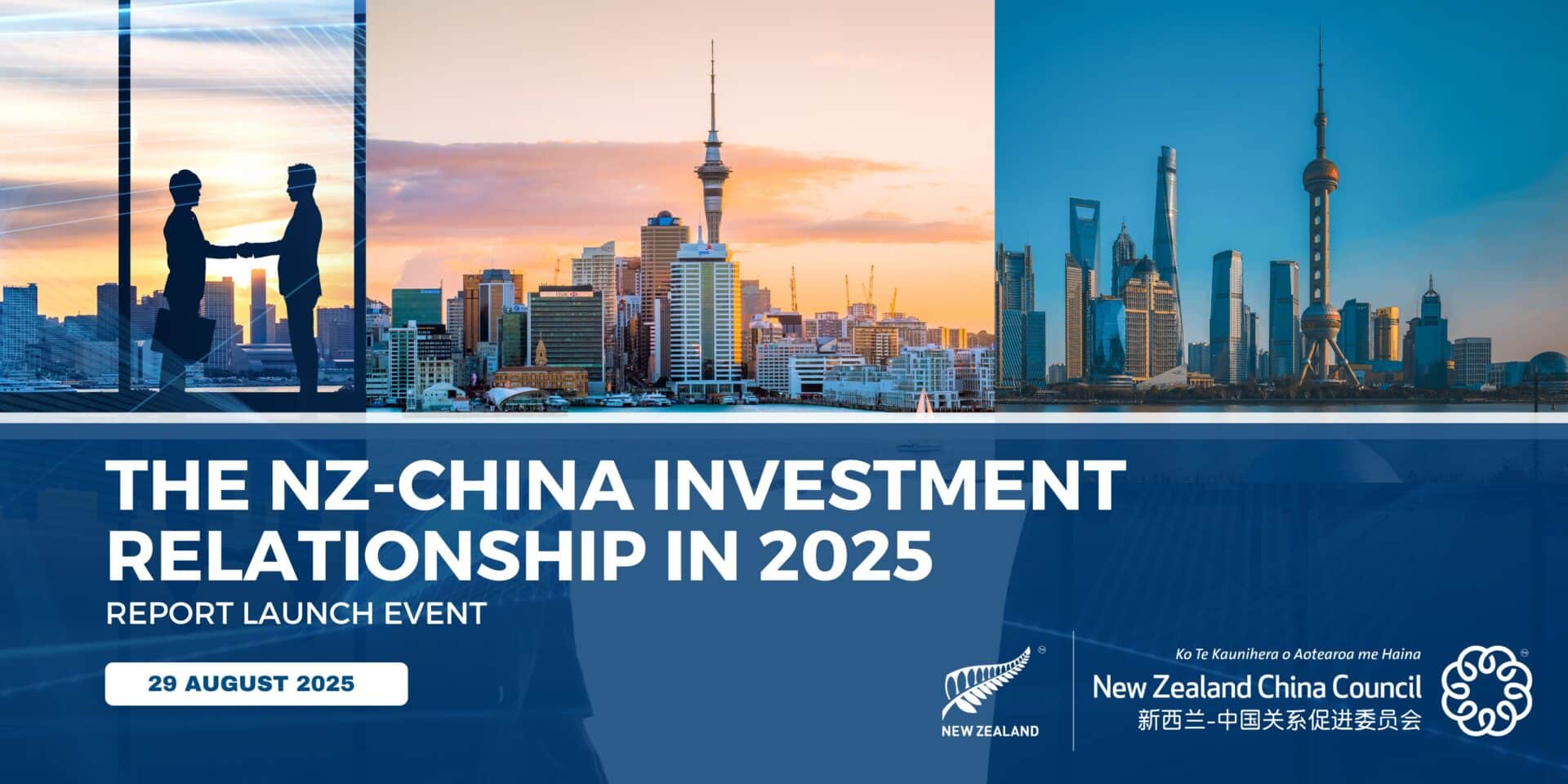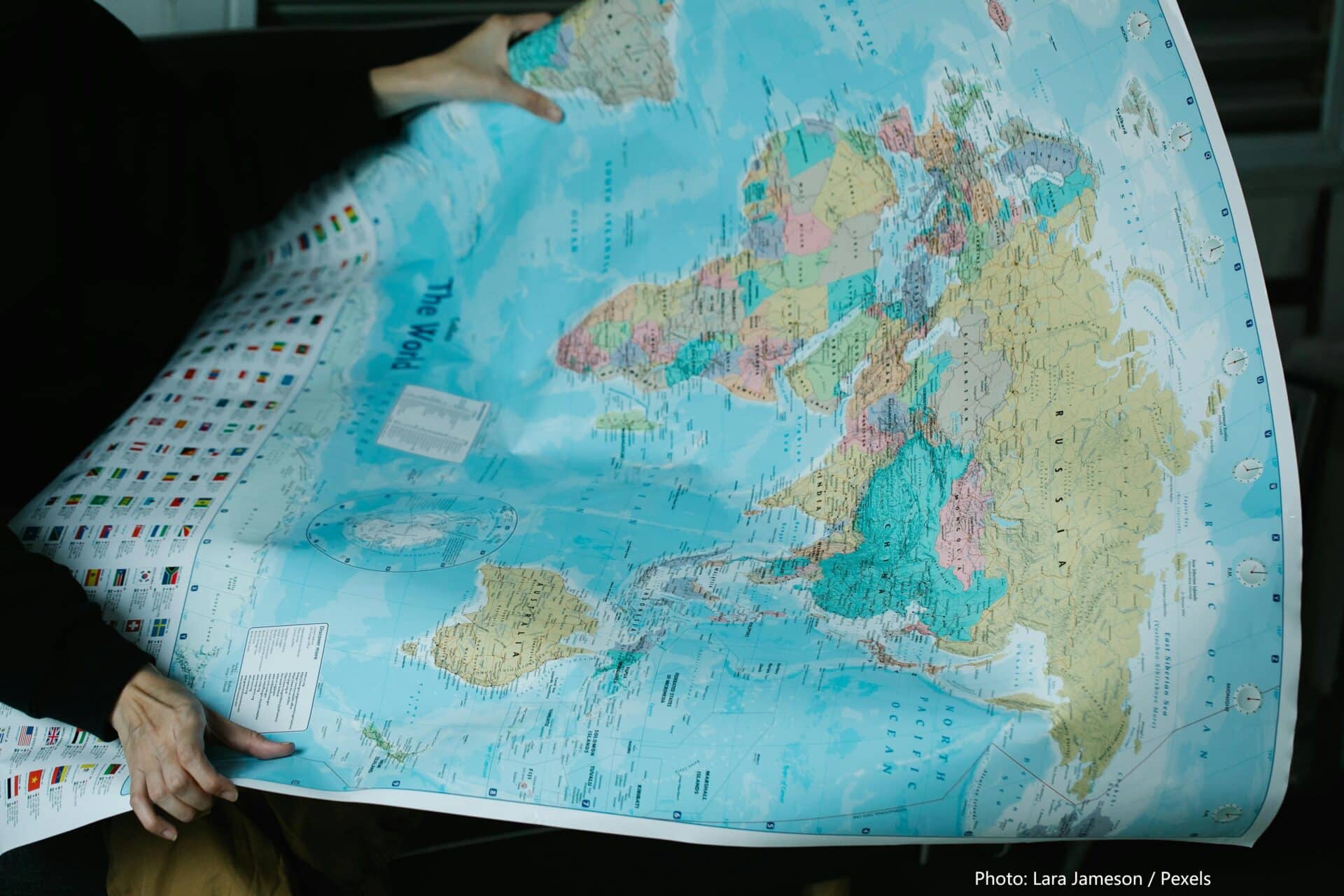DANCING WITH THE DRAGON – OPPORTUNITY AND RISK IN THE NZ CHINA RELATIONSHIP
FULL TEXT OF SPEECH BY STEPHEN JACOBI, NZ CHINA COUNCIL EXECUTVE DIRECTOR, TO THE NZ INSTITUTE FOR INTERNATIONAL AFFAIRS, NELSON, 22 FEB 2018
“DANCING WITH THE DRAGON – NEW ZEALAND AND CHINA: OPPORTUNITIES AND RISKS”
It’s great to be in Nelson again and thanks to my good friend Paul Willis for arranging this opportunity to speak to you.
I do so this time on behalf of the NZ China Council, which is an organisation bringing together leaders from government, business and the wider community, to build strength and resilience into New Zealand’s relationship with China.
I’m pleased to be accompanied by David Pine who serves as the Council’s South Island representative.
I’m speaking to you at a time when China’s re-emergence as a global economic and political power is increasingly being felt around the world.
As our relationship continues to grow and deepen, it is perhaps inevitable that there will be some heightened public debate about the extent of that relationship and its impact here in New Zealand.
Dancing with a dragon must after all be considered a risky business, even for us kiwi hobbits, and even at the best of times.
Tonight, I’d like to share some thoughts in three areas:
• Firstly I’d like to talk about the relationship as we see it today
• Secondly, I’d like to consider the nature of the public debate about the relationship
• And lastly, I’d like to discuss how we can continue to build the relationship in the future, while being mindful of both opportunities and risk.
The relationship today
By any measure, these are amongst the best of times for the NZ/China relationship.
If you consider that 45 or more years ago, in 1972, when New Zealand diplomats entered China to establish relations with the People’s Republic, they did so on foot from Hong Kong – yet today, 36 flights a week link China and New Zealand – then clearly something has changed.
On the economic front, there was a significant advance after the signing of the free trade agreement which took effect in 2008 – in a relatively short time since then China has become our largest trading partner, challenging Australia for that position.
We are by now used to story about how well dairy does in China but did you know that New Zealand currently supplies over 80 percent of butter imports into China and over 50 per cent of cheese imports?
Half of the pizzas eaten in China use New Zealand mozzarella cheese – that’s a lot of pizza and a lot of cheese.
And there’s a lamb story too – China has nudged out Britain as our major market for sheepmeat – that’s a lot of hot pot not in Lancashire but in Harbin!
Not only is China the largest single market for a range of goods which this region exports including sheepmeat, wool, forest and wood products as well as dairy it is also extremely important as a market for our services exports.
Education and tourism are the biggest services exports, with 34,000 Chinese students studying here and 400,000 Chinese tourists visiting each year – both sectors of importance to Nelson.
New Zealand also increasingly exports to China services products from the ‘knowledge economy’, such as design, information technology, film and TV, and food safety assurance.
China is a growing investor in New Zealand.
China’s stock of investment lags behind other partners like Australia, the United States, Europe and Japan, but the growth is significant and China’s investment is not confined, as some might think, to farms and food but to all sectors of the economy including manufacturing and the creative industries.
This extraordinary growth in trade and investment cannot be attributed entirely to the FTA – China’s rapidly expanding economy, on which we relied heavily during the global financial crisis, also had a lot to do with it.
The NZ-China FTA was initially projected to increase our exports by between $225-$350 million each year, but that target has been revised upwards to $30 billion in two way trade by 2020.
We’re already at over $20 billion and whether or not that upper target can be reached, it is clear that on the numbers alone the economic relationship has expanded in leaps and bounds.
New Zealand was not the first country to have an FTA with China – our old competitor Chile beat us to it – but we were certainly the first developed country to do so.
That gave us some kudos with our Chinese friends who regularly point to a number of “firsts” in the relationship, of which the FTA is one.
As a result, New Zealand has benefited, more than might be expected for a country of our size, from the close attention of China’s political leadership, many of whom at early stages of their careers have visited New Zealand.
President Xi Jinping made an earlier visit to New Zealand before he became President.
Some have spoken of a “special relationship” between New Zealand and China – it is certainly true that there is a level of friendship and confidence in the relationship which both sides have been keen to foster.
That New Zealand, although firmly a member of the Western group of nations, is not in a position to threaten China, clearly helps.
Seen from Beijing New Zealand appears as a constructive and predictable partner whose perspectives on a range of issues are of interest, whose people are friendly (most of the time) and whose economy has been open to trade and investment.
For many of us the change in our relationship with China may have occurred largely without us noticing – it is something which has happened “over there” through trade rather than “back here” through people connections.
Today however we are certainly more accustomed than we once were to having Chinese neighbours, school mates and co-workers.
We see more Chinese people on the street, more Chinese signage, Chinese festivals and other cultural products on display.
Increasingly Chinese people are not “them”, they are “us” and that too is a change.
The NZ China Council has been undertaking a survey of public attitudes to the relationship and while I cannot yet share the full data I can tell you that preliminary results suggest something just under half of New Zealanders feel positively about the relationship, certainly behind the United Kingdom and Australia but more positively than the United States.
Public perception matters because the relationship with China is no longer just economic or even political, it is taking on a new human dimension.
In referring to the relationship we can’t just talk about the numbers, as I did at the beginning of this talk, we have to talk about real people and their stories – migrants, students, tourists.
And it is here, frankly, where we have a lot more work to do as New Zealanders to come up to speed with this change in the relationship and to boost our capacity to engage with it and the Chinese people who are now among us.
The Lantern Festival which will take place in many centres in a few weeks’ time is one way to engage more with the Chinese dimension of New Zealand society.
Learning some basic Chinese is another.
There has been pleasing progress in the number of primary schools teaching Mandarin, especially with the help of the 150 Chinese language assistants in New Zealand, but this has not followed through at secondary and tertiary level.
Linguistic and cultural capabilities are notoriously under-developed in New Zealand and we simply have to do better than we are doing presently.
And lest there is any doubt let me make it quite plain that I don’t believe engagement with Chinese language and culture should come at the expense of te reo me nga tikanga Maori – it’s a matter of doing both.
Public debate about the relationship
It is true of course that the growth in the relationship has not been without its critics.
Public debate about the relationship is to be welcomed in a robust democracy like ours, although care needs to be taken to ensure that public debate remains civil and properly focused on the issues.
In this country especially, where we have a history of a poll tax applied to immigrants of Chinese origin as well as official and community discrimination, it is easy for debate to take on an uglier character.
I want to focus particularly on two aspects of this debate which have resurfaced in recent months – one, a concern that the Chinese, through their government representatives and Chinese immigrants, are seeking to wield undue influence in our democracy and decision-making and the other, a concern that we are putting too many economic eggs in a Chinese basket.
It has to be said right at the outset that New Zealand’s democracy is a precious taonga that it is right to uphold and protect.
We need to be aware of untoward influence from wherever it might come both externally and internally.
New Zealand is not immune to these threats and we are fortunate to have institutions and agencies that work to guard against these sorts of challenges to our national security.
In recent months, some commentators have alleged that the Chinese Government is actively seeking to undermine New Zealand’s democracy and the right of New Zealanders freely to voice their views.
Espionage, networks of intrigue, even the use of sites on Chinese owned farmland to assist in the development of missile weapons systems have been part of the mix.
Hyperbole aside, we should always take seriously the idea that our democracy could be undermined. But is there evidence this is happening now?
Our relationship with The Peoples’ Republic of China is almost half a century old.
Over time we have learned how to build the relationship on the basis of mutual respect and shared interests, despite obvious differences in fundamental values.
New Zealand stands proudly as a liberal democracy and China’s political system is clearly different.
While we do have occasional public disagreements, these have not detracted from the momentum in the relationship.
In the economic sphere, our pursuit of a deeper relationship with China has not prevented New Zealand from clearly advocating the merits of the Trans Pacific Partnership.
Politically, even while we receive occasional Chinese naval ship visits, we continue to maintain close defence and intelligence relationships with our Western allies.
“Soft power” is a term coined by US academic Joseph Nye to refer to the way in which most nation-states today seek to wield political influence through non-aggressive and mostly legitimate means such as persuasion and co-option.
It’s the opposite of “hard power” like military muscle or superior economic strength.
Soft power has its upside – its often the way academics, journalists and artists develop connections in other countries through funded visits and cultural exchanges.
New Zealand itself uses soft power with great effect when it seeks to portray a positive view of our country overseas, including by funding visits by journalists and other “influencers” to New Zealand.
Although Americans, Europeans and Japanese all use soft power, it is the Chinese use of soft power that is being questioned today.
Some prominent members of the Chinese community have faced intense criticism about their past and present connections with the Chinese Government and the Chinese Communist Party.
Chinese community networks have been described as being a conduit for Chinese representatives to promote a positive view of China and to subvert local decision-making.
The funding of New Zealand political parties has also been highlighted.
Some of this criticism appears to be linked to a similar debate in Australia, although I would argue that the situation in Australia is quite distinct – although we share many things, we have a different political culture, we are not a military ally of the United States and we see our role in the world differently.
Recent allegations here in New Zealand have sought to identify ‘smoking guns’ but mostly without the proof or evidence to demonstrate culpable wrong doing.
Everyone in New Zealand is innocent until proven guilty.
If there has indeed been misbehavior or unwarranted interference, a higher standard of evidence needs to be provided so that this can be investigated by the proper authorities.
The second area of concern I want to address is the notion that we are too dependent on China economically.
Once again this is an entirely reasonable debate to be having – it is a consequence of the extraordinary growth in the economic relationship I outlined earlier.
I was struck by a comment on Twitter this week which suggested that China could if it wanted to “paralyse New Zealand’s economy at will”.
I’m not sure why China would ever see it in its interest to attempt to do such a thing but it puts the idea of over-dependence in stark relief.
A generation ago New Zealand learned a difficult lesson: when Britain joined the European Community in 1972 – that year again – we faced an enormous task of diversifying the economy.
Our outreach to China and more widely in Asia was a key part of that effort.
There’s no question that New Zealand’s interests are best served when we have many partners.
You have heard me talk on two previous occasions about the Trans Pacific Partnership, now shortly to be signed by the eleven remaining partners.
That too is part of New Zealand’s diversification strategy as is our current attempt to initiate a free trade negotiation with the European Union (ironic if you consider the history!).
The criticism that we are too dependent on China implies that we have other partners we have overlooked.
I am not sure that is the case, although there are questions about our capacity especially at the level of individual firms to deal with multiple partners at once.
Others suggest we should be careful not to choose between a China-dominated world and an American one.
Or even that we should stand-aside from both.
There are risks for New Zealand in all these scenarios.
I do think it is possible for us to have our cake and eat it too – we can build a stronger and closer relationship with China, while developing other equally profitable partnerships and we can do so in a way which meets both our interests and values.
Next steps in the relationship
When it comes to China, the future may look quite different from the immediate past.
We may need to get used to working even harder to maintain the momentum in the relationship.
China is changing rapidly – having enjoyed stellar economic growth in the last decade, it now needs to contend with other pressures – corruption, debt, inequality, urbanisation and the environmental and societal consequences of growth.
Chinese economic policy is changing too – a move away from investment-led growth to consumer-led growth and the realisation that a significant and growing share of the economy is now in the hands of the private sector rather than state owned enterprises.
A new generation of Chinese leadership is in office – President Xi Jinping has consolidated his power at the recent Party Congress.
The leadership knows the old style of economic management cannot continue, but it looks at the ravages the global financial crisis caused the Western economies and is determined not to see the same thing happen in China.
Globally we see China’s economic weight continue to grow and the mantle of leadership pass from an increasingly inward-looking United States to a more confident China.
China has some way to go to “walk the talk” of openness and inclusion, particularly in terms of the way it regulates its economy, but the language from Beijing these days is more appealing to many than what we hear from Washington.
China too is grappling with the demands of a growing middle class becoming more impatient with the restrictions on human rights and personal freedoms.
All of this is a rather turbulent mix and a challenge for any government, let alone one which has to deal with 1.379 billion citizens.
Yet this is the China that New Zealand has to deal with.
The first consequence is that we today have a lot more competition for China’s attention than we had in the past.
Others are keen to exploit their own “special relationships”.
Australia for instance has negotiated a very useful FTA, certainly as good as ours, and better in that it is more recent.
Chile has upgraded its FTA while our FTA upgrade announced last year is still under negotiation.
Our European friends – Britain, Germany, France – all have established new bridgeheads in China and can bring to the task far greater resources than we can, particularly in the area of cultural diplomacy and fostering those people-to-people links.
A second consequence is that as China’s confidence grows they will become less willing to accept challenges to their political system and their own decision making processes.
This will require careful handling on the part of New Zealand which prizes itself on the independence of its foreign policy and on the values which underpin our liberal democracy.
This is not an argument for ignoring differences of view that might occur: on the contrary it is an argument for stepping up our engagement with China in all matters relevant to the relationship.
Former New Zealand Ambassador to China Michael Powles has written recently about the need for New Zealand to “develop the already strong relationship with China to increase the prospects for New Zealand to have influence with China as it wields increasing regional and global power”.
Michael writes that New Zealand has a lot of experience in being a “small friend to a great power” ie with Britain and the United States – co-operating actively but also discussing differences frankly.
In a similar vein, the Chairman of the NZ China Council and former Foreign Minister Sir Don McKinnon has drawn attention to the dialogue on human rights which he established with his Chinese counterpart .
The point here is that New Zealand needs to engage more with China, not less.
The third consequence is that New Zealand needs to seek opportunities to reframe the relationship in ways that will find resonance in China.
One such opportunity comes in the form of China’s Belt and Road Initiative, an ambitious vision for connectivity and infrastructure development originally along ancient trade routes linking China and Europe and now more modern trade routes linking China and the rest of the world.
In case you’re wondering what this has to do with New Zealand, we are considered a Belt and Road country located on the 21st century Maritime Silk Road, linking China through the South Pacific and onto Latin America.
Last March the former Government signed a non-binding Memorandum of Arrangement with China which committed both sides to exploring ways to co-operate in this new framework.
BRI has its fair share of sceptics and critics but is an opportunity for New Zealand to demonstrate how New Zealand expertise and interests can assist the achievement of this vision.
It is important that we do so in ways which maximise opportunities for co-operation and minimise any risks to reputation or other relationships.
At the NZ China Council, we believe our involvement should be based on New Zealand’s comparative advantage.
We see BRI as a means to achieve greater connectivity with China and other BRI countries through improvements to “soft infrastructure” rather than the “hard infrastructure” – the way goods, services, capital and people move along the belt and road rather than by building the road itself.
New Zealand has a wealth of policy expertise and services to offer in this area including in relation to trade facilitation, supply chain connectivity, innovation, the creative sector and building a more viable bridge across the Pacific for goods and people to travel from China via New Zealand to Latin America.
Involvement in BRI could be a way to continue to expand and deepen the relationship at a time when there is rapid change and greater competition for attention in Beijing.
Watch this space – you’ll be hearing more about BRI in months to come.
Conclusion
We’ve come a long way since those diplomats walked across the border from Hong Kong in 1972.
The pace of economic development in China could not have been foreseen back then, nor the extent of today’s economic and political engagement between the two countries.
With this engagement invariably comes public debate – it is a debate worth having, but we are a better nation if we respect the people about whom we speak.
The future of the relationship is unlikely to be like the recent past.
We need to have multiple partners on our dance card but it will require ongoing commitment and dexterity, and a good understanding of the opportunities and risks, for New Zealand to keep dancing with the dragon.












 MENU
MENU
